Prepping on a Budget (with Little to No Money)
Prepping on a budget is possible, even if you don’t have a lot of time and money. Like most projects, you can stretch your cash farther with the right mindset and some determination.
How to Start Prepping on a Budget
- Accept you are responsible for yourself – PERIOD.
- Decide what emergencies are you preparing for? Is it a tornado, hurricane, job loss, injury, or end of the world?
- How much to prep? What percent of your efforts and funds should you invest in preparing?
- What do you NEED?
- Communicate with people who will be directly impacted by your prepping.
- Team up with like minded people.
- Practice your skills so they are ready when you need them.
- Change how you spend your TIME.
- Change how you spend your MONEY.
Take Responsibility
You are responsible for yourself, and probably some others, like family. Don’t assume that someone else will be around to help in an emergency. Even in good times, it could be 20 minutes before an ambulance or police officer arrives.
Pick the scenario you are most likely to encounter – bad weather, job loss, etc. – and start your prepping there. Throughout history, people have been faced with challenges, and overcome them. It's our turn now.
How much to prep?
We need to plan for the best AND plan for the worst. If you are prepping on a budget, decide what percentage of your budget goes towards “normal”, and what percentage goes towards “disruption”.
For example, if you live where there are regular hurricanes, it might be 85% for no hurricane and 15% for hurricane.
If you aren't sure, set aside 5% for preparedness, or $5 for ever $100 of real income.
What do you really NEED?
For prepping on a budget, it's a good idea to start with the basics. Figure out food, water, and shelter. It doesn't matter if it's a few days without power or a SHTF scenario, you need these three things.
A quick goal to work towards is three days of emergency food and water in storage. After you have three days, work towards two weeks, and so on.
Water can be stored in a bathtub if you fill it right before a likely power outage. Ideally, you'll have a water filter that doesn't need power, like a Berkey. You can use a filter for contaminated city water, rain water, or questionable stored water.
See “Emergency Water Storage and Filtration – What you need to know before emergencies hit” for more information. For improvised filters out of common materials, see 3 Emergency Water Filtration Options to Get the Funky Chunks Out.
Shop food sales, but stick to quality food, not junk. A bag of potatoes is a better value than a bag of chips. Canned goods and dry goods store for months or even years. Have a short term and long term food plan.
Articles related to food and water:
- 23 Common Sense Ways to Stretch Your Food Budget
- Prepping Food Storage – Top 10 Foods to Stockpile
- Long Shelf Life Foods – What Lasts Best (with Chart)
- Preparedness Storage – Finding Room and Keeping it Safe and Sound
Make sure you also have a get home bag and bug out bag. You can and should build your own get home and bug out bags. This could be as simple as a used backpack and bottle of water and jerky, a change of clothes and walking shoes.
Communicate
If you are changing how you live and what you do, communicate that to loved ones. Talk with your family and close friends. If you know they wont accept your ultimate goal, focus on the parts they will accept.
Talk about going in together to buy in bulk to save money. Maybe you could take a first aid class together, or work toward a paramedic certification or nursing certification.
Team Up
Find other people who have the same hopes and dreams. Join or start a prepper group so you know who you can count on in a survival situation. A group is stronger than an individual. Teams win in the long haul.
Start small as you gather group of like-minded people. Ask about world events, ask about the last storm, ask about job loss.
Once you have a group you can learn from each other and split up finding good information resources. You can share great deals on food, supplies etc.
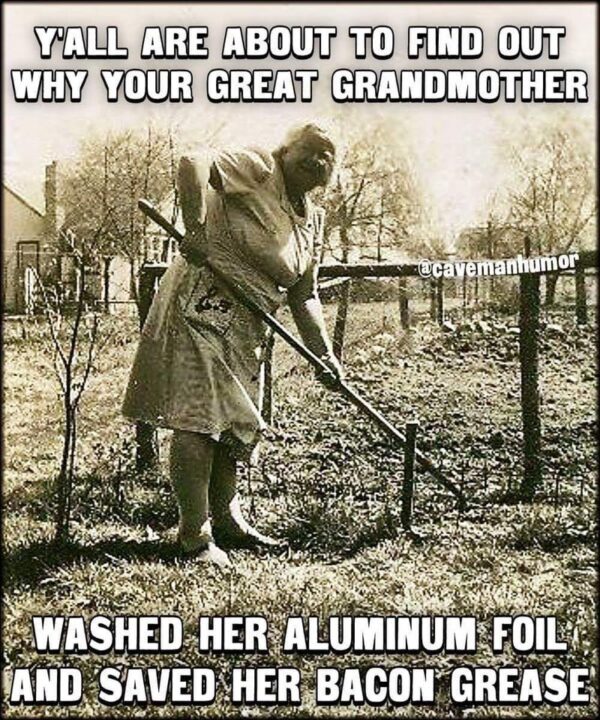
Practice Survival Skills
Being prepared requires practice. Practice for the emergency or emergencies you are worried about. Track what works and what does not work.
Try living without electricity for 24 hours. Can you cook without electricity? How will you handle frozen foods? Think through everything you NEED to get done.
See “What to Do When the Power Goes Out (12 Things to Prepare)“.
Try living without running water for 24 hours. Try walking home from work on a nice sunny day, with a friend or friends if it is a dangerous route. You will learn about water, walking shoes etc.
Update all your plans as you learn more. This is an ongoing process.
Manage your Time
You can LEARN a lot without investing cash. Read online, watch videos, read books (from the library if you don’t have the $).
Maybe you like video games, or binge watching videos. Cut back on those and spend that time learning, and preparing.
Our recommendation is picking skills or actions that fit both good times and bad. Knowing how to cook is helpful if the weather is great and helpful even if the SHTF situation occurs.
Some examples include:
- Gardening – even apartment dwellers can grow a little in containers
- Herbalism, foraging
- Hunting, fishing and other outdoor activities
- Basic medical skills – read through free CPR, first aid documents etc, many communities have free first aid classes, maybe even consider volunteering as a first responder or fire fighter
- Learning trades (construction, welding, electrical etc.)
- Sewing, fire starting, anything that can help you live how you want to live. Pick a subject and become an amateur expert. Learn about effects of radiation, ballistics, hydraulics, aerodynamics, pretty much anything.
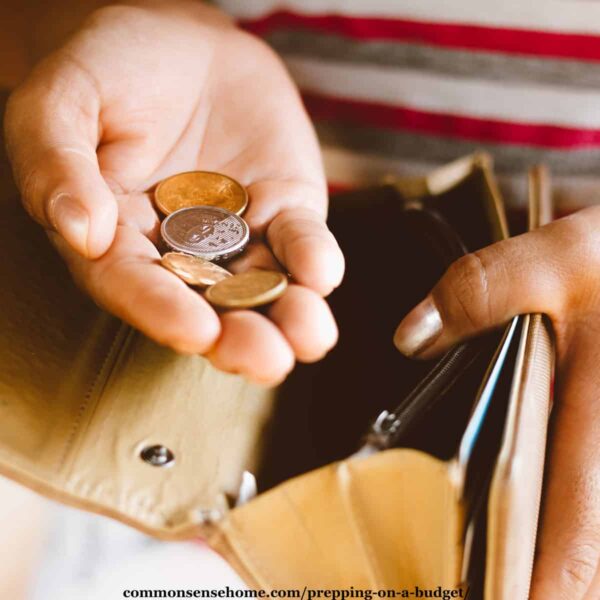
Manage your Money
Make lists of things you could buy when you're prepping on a budget. Break the list into LIKE, WANT and NEED, and focus on the NEEDs first.
Before you start shopping, track what you spend your money on right now. Focus on your budget, and your needs, not some theoretical magical solution. Think about what you need NOW and what you need in case of an emergency.
If at all possible, figure out how to earn more money. Having more options because of more money will help you whether there is a disaster or not.
We have become a “gig economy“, with many more options for side hustles that have decent payouts on flexible schedules. Maybe you can be an Uber or delivery driver, or watch someone's kids, or do freelance work on Fiverr.
Here are some ideas for managing your money while prepping on a budget.
Research Food Costs
Find out how to get food that costs less. Stocking up can save you money, but make sure to store items correctly and use what you buy. For instance, bulk rice much cheaper than the small grocery store bags, but not if you buy brown rice and it spoils before you use it all.
Grow food to cut your vegetables costs. Work with a gardener to trade gardening time for veggies. You get experience AND food for it. If you don’t have land, look for community gardens.
Reduce the amount of money you spend eating out
You can generally prepare your own food for a lot less money than eating out. A fast food meal may cost $15 ($60 for four people). Or you can buy $60 of potatoes (or rice), beans, and some fresh veggies and have meals for a week.
We generally get several meals out of one large roast chicken by eating a portion the first night, then using the carcass to make broth, and remaining meat to make soup or other dishes.
Avoid premade foods
Generally premade foods are 2x to 40x more expensive than basic ingredients. Cook from scratch instead. Use batch cooking or batch prepping to save time and make your own “fast food”.
First aid supplies
Your first aid kit can just be bandages and rubbing alcohol, scissors and duct tape. You don’t need to start out buying blood pressure cuffs, and advanced medical devices right away. Only get what you know how to use.
Buy stuff on sale (but not stuff you don't need)
Write products you use daily, and how much you use, for a week or two. This will give you an idea of how much you need to stock up.
Then when you see things you know you will use on sale, stock up or buy in bulk. This includes products such as: food, toilet paper, shampoo, soap, hygiene products, and clothing.
Don't buy stuff you don't need or that's bad for you just because it's on sale. If you have difficulty controlling impulse buying, get a “shopping buddy” who will help you stick to your prepping budget.
Repair/Reuse
Repair something instead of throwing it away. Reuse things when you can. A ratty t-shirt can be a rag, or cut in strips to tie up vegetables, or char cloth, or butt wipe in an emergency.
Cut back on contract costs
If you pay for Netflix and Amazon and Disney and HBO you are paying a lot per month. Eliminate those, spend less time watching fiction and more time learning AND save that money to spend elsewhere.
Get a cheaper smartphone and/or don’t replace it right away. Get a cheaper service/plan.
Consider rechargeable batteries
Once you can afford devices and things that use batteries, get rechargeable batteries, a charger and small solar charger. You can charge when camping, charge when there is an emergency and not pay for replacement batteries for at least 5 years.
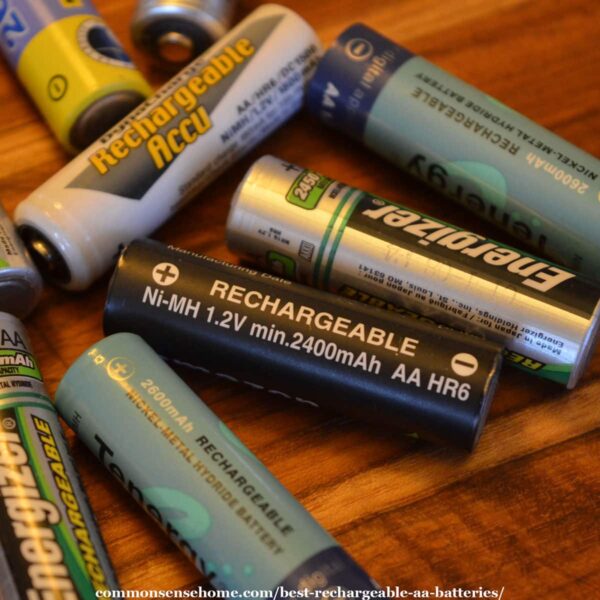
Shop for Used Items
When you're prepping on a budget, you need to check places where you can buy used items, like garage sales and thrift stores. Often you can get used items that are very good for a LOT less money.
Buy more durable stuff
Although it will be more expensive, you won't have to replace items as quickly, and in a SHTF situation, they are less likely to break. Start with a good pair of work shoes, durable pants, and a good jacket.
A prepper phrase is “cheap is expensive”. If an item is too cheap (breaks easily), it is expensive to have because you pay for it repeatedly.
If you have another cost saving idea please leave it in the comments.
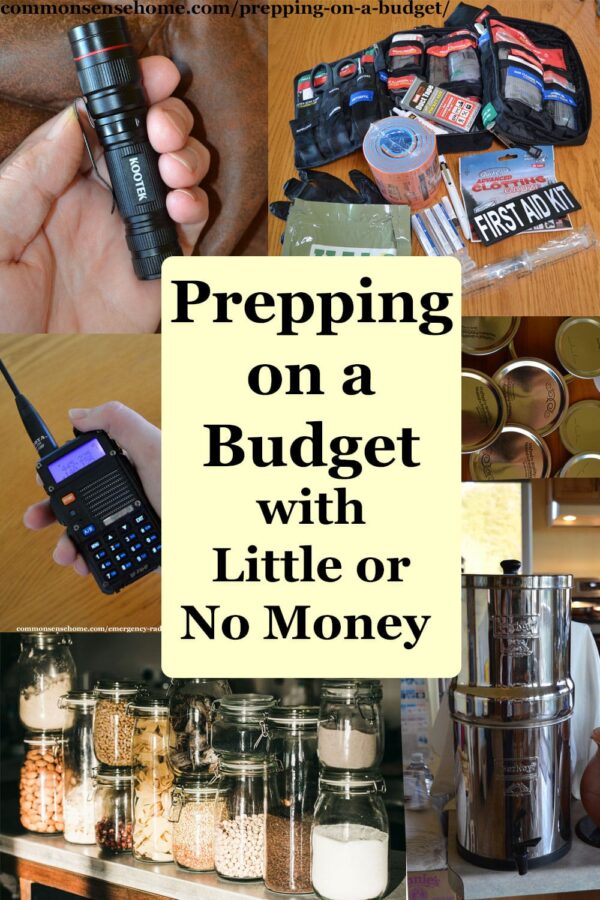
Related Articles
- Preparedness Basics – 5 Simple Steps to Get You Started Today
- 5 Lessons from Great Depression Life that Still Make Sense Today
- How to Homestead – (Not Quite) Like Grandma Used to Do
- Emergency Radios (Handheld Radios)

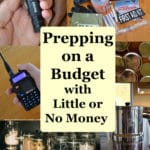
Turn your hobby(s) into preps or profit. Mine is lantern collecting and cast iron cookware. I will never get (be) rich, BUT, am ready to help others when the grid goes down! EVERYONE
Needs a good lantern and a iron skillet or pot that can be relied on when times are hard. My wife and I give these as wedding and Christmas presents.
The best thing you said in this article–and something that needs plastered on billboards is—“you are responsible for yourself”!!!!! The sheer number of people these days that wait for somebody else to “fix it” is staggering. And howl and complain if it’s not fixed “fast enough”.
My husband and I both were raised poor and we lived in Florida many years with the yearly threat of hurricanes. We learned very early in life to get it and keep it and prepare for it ourselves. We kept a stocked pantry and had a hand pump on the well. We have lived frugally so we would have enough for rainy/stormy days. We have prepared and taught our children to do the same. Sadly that is not common now. Keep preaching cause there are too many that need to hear this!!
August and I agreed that should be front and center, because like you said, too many people are waiting for someone else to take care of things. Even in good times, there are only so many first responders, and I heavily suspect we are headed into not so good times.